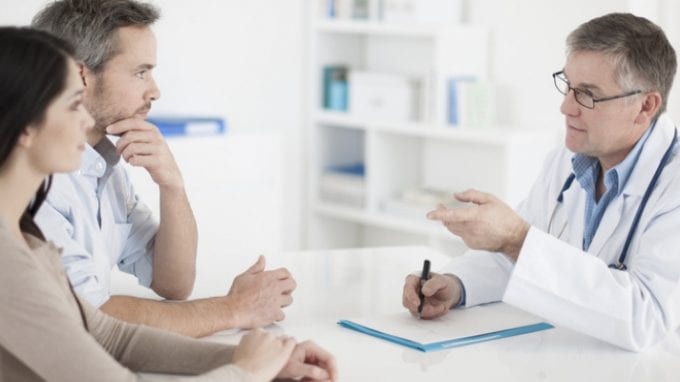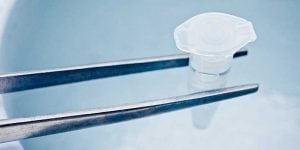Donor eggs can make pregnancy possible for women who might not be able to become pregnant with their own eggs. Egg donation can also be referred to as oocyte donation.
Because a lot of women and couples are choosing to have children in their late 30s and 40s, many now turn to donor eggs. The Centers for Disease Control and Prevention reported that the number of cycles attempted with donor eggs has risen from 1,802 in 1992 to 17,962 in 2013 with 47 % of transfers resulting in live births.
What are Donor Eggs?
Before the development of in-vitro fertilization (IVF) there were no options for women that struggled to get pregnant with eggs of their own. However, now through the process of an egg retrieval, it is now possible to use eggs from a donor to become pregnant.
Donor Egg Candidates
In all actuality, any woman that wishes to become pregnant could chose the route of donor eggs.
However, most women who may seek this route might have the following conditions or situations:
- Extremely poor egg quality
- Early menopause or premature ovarian failure
- Over the age of 40
- Hormonal imbalance
- Ovaries do not respond to stimulation
- History of genetic disease
- Women who have previously failed multiple attempts of IVF
- Women who suffer from multiple miscarriages
If you are seeking the egg donation route, it is important for your doctor to complete a medical evaluation on you to include a complete history and physical examination. This is to ensure that your health would not be significantly jeopardized by pregnancy. This will also help to seek and correct any abnormalities that could compromise the success of IVF with donor eggs.
Who can Donate?

She must genetic screening with both family history and blood tests. She must also undergo testing for communicable infectious diseases. Then finally a formal psychological evaluation is also performed.
If the donor smokes, uses illicit drugs, or consumes excessive amounts of alcohol they are rejected from this process.
What is the Process for Selecting an Egg Donor?
The first step of the process is to decide on if there are any particular characteristics you would prefer in an egg donor. The egg donor could be a family member, friend, or even someone anonymous.
One of the best places to look for an egg donor is to start with your fertility clinic. A nurse or coordinator can help you walk through the process and answer any questions that you may have along the way. There are also many different independent egg-donor agencies and registries available.
Some clinics will build a profile for your viewing based on personality, intellectual capabilities, level or responsibility, motivation, and health backgrounds. This will help you to find certain characteristics that you may be looking for.
Possible Legal Concerns
Laws tend to vary from state to state, but there should be little to no concern about parental rights in the case of donor eggs.
In the eyes of the law, the woman who carries a child to term is considered the legal mother of the child, even if the child was not conceived with her eggs.
Much like adoption, using donor eggs can be open or closed. What that means is that you can have an open relationship with certain donors, allowing you to ask questions throughout your child’s growth about their personality or background. Or you can have a closed egg donor process, where the donor will remain anonymous and any contact that must occur can go through legal routes or your fertility clinic.
If you find yourself concerned at all, regardless if the donor is known or anonymous, legal contracts can be written that remove all parental rights of the donor.
What does the Process Look Like for the Recipient Couple?
In most cases of a fresh egg donation, the recipient’s cycle will be synchronized with the donor’s cycle. This is usually accomplished by using a combination of hormonal medications, usually right before the period is expected to start.
- Estrogen will then be added daily to match the recipient’s cycle. By being on an identical cycle this offers the best chance of having the lining of the recipients uterus be prepared to support the embryo.
- The male partner would then provide his semen sample on the same day that the eggs are retrieved from the donor. The eggs and sperm are then fertilized within the laboratory using in-vitro fertilization.
- The recipient woman will begin progesterone treatment the next day until the day after the embryo transfer. The embryo transfer itself will usually occur within two – five days after the eggs were retrieved.
- Ten days after the transfer a blood test will be performed to determine if a pregnancy has occured.
- Most donor recipients will likely stay on both progesterone and estrogen for the first 10 weeks of their pregnancy, until the placenta can take over on the hormone production.
Overall
If you are looking into the process of donor eggs, do your research. Make sure to ask and get the answers for any question that you may have about the process. If you do not feel sure about something, keep searching until you feel comfortable.
This is your journey, always make sure that you feel comfortable moving forward with it. We wish you the best of luck!




